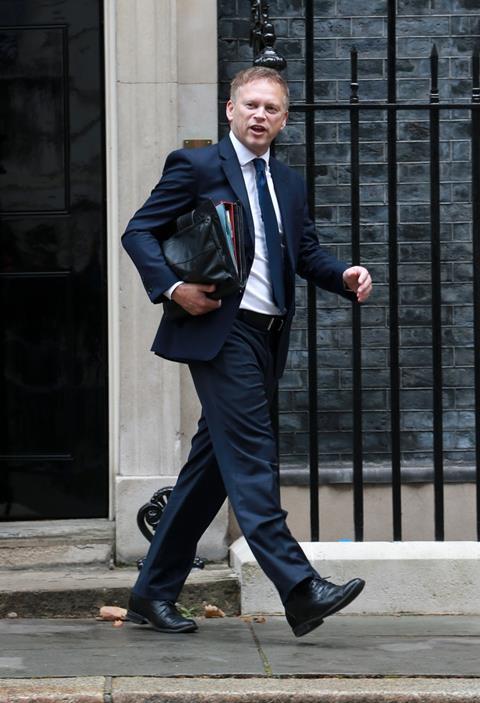Critics unhappy that three-year government scheme will not come into effect until April 2023
New funding of £1bn will be made available to insulate the UK’s least energy-efficient homes, the business secretary has said.
Grant Shapps said the ECO+ scheme would see hundreds of thousands of homes given with new insulation, with support targeted at those in the lower council tax bands and with the most vulnerable residents.
The scheme is set to launch in spring 2023 and run for up to three years following a consultation which starts today until 23 December.
The funding will join the existing £6.6bn “help to heat” schemes already running for this five-year parliament, and will come ahead of £6bn of new energy efficiency measures set aside for the three years from 2025.
The news follows the government’s announcement of a new target to reduce the energy consumption of UK buildings by 15% by 2030, when compared with 2021 levels.
Shapps also announced a new £18m campaign to provide public advice on how to reduce energy bills. He said the ECO+ scheme, which will include measures such as loft insulation, cavity wall insulation and draught proofing, could save consumers around £310 a year on their energy bills.

“A new ECO scheme will enable thousands more to insulate their homes, protecting the pounds in their pockets, and creating jobs across the country,” Shapps said.
“And, in the short term, our new public information campaign will also give people the tools they need to reduce their energy use while keeping warm this winter.”
>> Also read: Industry welcomes £6bn funding for energy efficiency measures
>> Also read: RIBA says energy efficiency taskforce “must learn from past failures”
Chancellor Jeremy Hunt said the funding was part of an effort to protect households from rising energy bills caused by Russia’s invasion of Ukraine.
“In the longer term, we need to make Britain more energy independent by generating more clean, affordable, home-grown power. But we also need more efficient homes and buildings,” he said.
Around 80% of the funding will be made available for the least energy-efficient homes, which have an EPC rating of D or below. Around 20% of the funding will also be targeted at those on means-tested benefits or in fuel poverty.
The announcement was welcomed by the Royal Institution of Chartered Surveyors, with the body’s senior public affairs officer Sam Rees calling the support “timely”.
He said research carried out by the organisation had found consumers had been more cautious about spending money on energy efficiency retrofits because of the cost-of-living crisis.
“Funding in this space should help ease these financial concerns and get this crucial aspect of the net zero agenda back on track,” Rees said.
But Simon Brammer, head of cities and climate solutions at climate change charity Ashden, criticised the scheme for only coming into effect in the spring, when the weather will be warmer.
“Quite incredibly, the funding doesn’t come into effect until April next year at the end of winter. So what are the government doing to protect vulnerable people right now during the cold months before April?” he asked.
Brammer also said the funding would fall far short of what is required to meet the government’s own 2030 target, which will need to see around 19 million homes insulated.
The Department of Business, Energy and Industrial Strategy said the scheme would benefit those who are not currently supported by other government energy efficiency schemes, such as the £800m social housing decarbonisation fund, which entered its allocation phase this month.
Actions the government will recommend through its public information campaign include reducing the temperature that boilers heat water from 75⁰C to 60⁰C and turning down radiators in empty rooms.
The original ECO scheme, which stands for energy company obligation, was launched in 2013 and requires energy suppliers to promote measures which improve the ability of low-income, fuel-poor and vulnerable households to heat their homes.
The scheme’s fourth phase, ECO4, started on 27 July this year.
















No comments yet